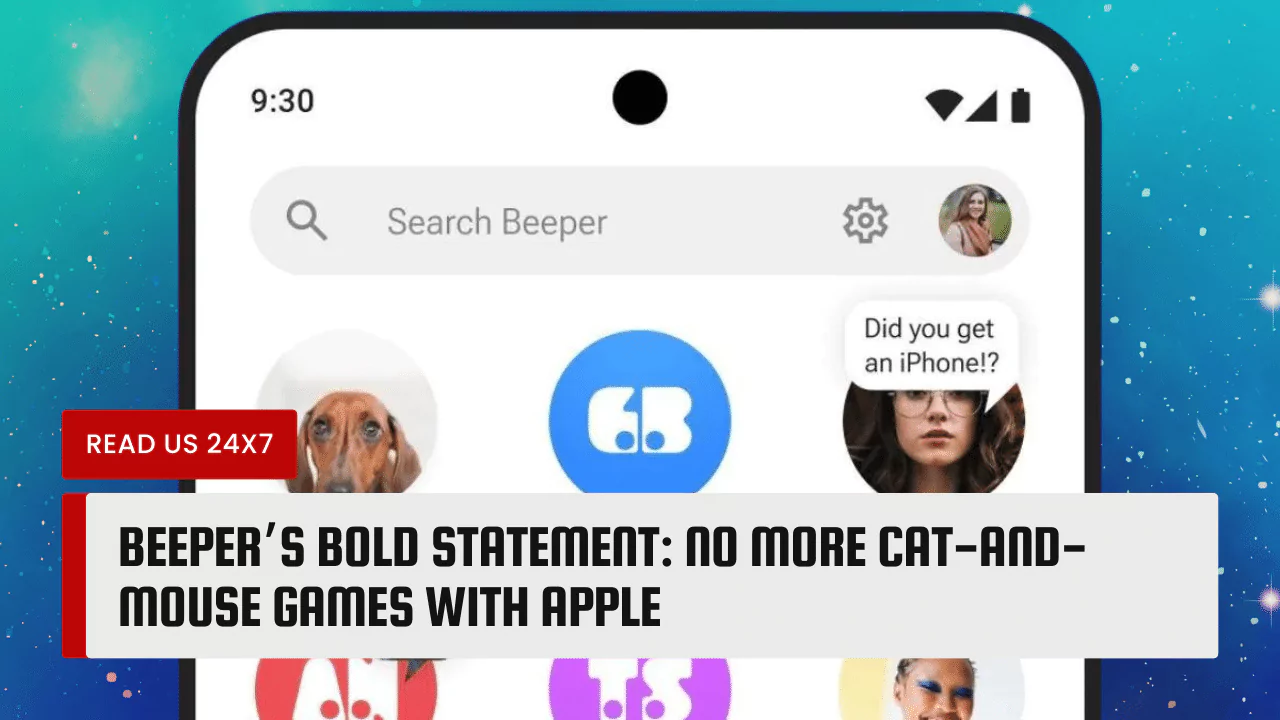Beeper, the universal chat app that claims to integrate 15 different messaging services, has announced that it will no longer attempt to make iMessage work on Android devices. Beeper CEO Eric Migicovsky boldly declares an end to the ongoing cat-and-mouse game with tech giant Apple. He also said that Beeper will focus on improving its other features, such as encryption, search, and notifications.
Apple, on the other hand, has reiterated its position that iMessage is exclusive to its own devices and that it has no plans to bring it to Android. Apple’s CEO, Tim Cook, has previously stated that iMessage is one of the key factors that keep users loyal to the iOS ecosystem.
Beeper’s Fight with Apple Over iMessage for Android
Beeper’s primary mission is to bridge the gap between iPhone and Android users by enabling encrypted blue bubble chats, replacing the default unencrypted green bubble SMS. The core objective is to enhance user experience, especially in the U.S., where SMS remains the predominant form of communication. However, Beeper’s efforts have faced significant opposition from Apple.
Despite Beeper’s innovative approach, Apple perceives Beeper Mini as a threat, alleging risks to user security and privacy. Beeper refutes these claims, emphasizing the open-source nature of their iMessage connection software, which allows scrutiny of the code to dispel any security concerns.
Beeper’s Decision to Move Forward
Beeper’s bold statement marks a turning point in their ongoing struggle with Apple over bringing iMessage to Android. The decision to cease the cat-and-mouse game reflects a commitment to long-term goals and a belief in providing a superior chat experience. As Apple maintains its stance on controlling iMessage availability, the tech industry and users alike watch closely, raising questions about fair competition, consumer welfare, and innovation barriers. The dialogue between Beeper and Apple underscores the challenges faced by smaller players in an industry dominated by a behemoth, with potential implications reaching beyond the realm of messaging apps.
Each time that Beeper Mini goes ‘down’ or is made to be unreliable due to interference by Apple, Beeper’s credibility takes a hit. It’s unsustainable. As much as we want to fight for what we believe is a fantastic product that really should exist, the truth is that we can’t win a cat-and-mouse game with the largest company on earth.
Beeper Wrote in a Blog Post
Apple’s Response to Beeper’s iMessage for Android
Apple has not officially commented on Beeper’s decision to stop trying to make iMessage work on Android, but it has made its stance on the matter clear in the past. Apple has always maintained that iMessage is a proprietary service that is only available on its own devices, such as iPhones, iPads, Macs, and Apple Watches. Apple has never shown any interest in bringing iMessage to Android, despite the popularity and demand for the service among Android users. Apple’s CEO, Tim Cook, has even admitted that iMessage is one of the main reasons why people stay within the iOS ecosystem, and that opening it up to Android would hurt Apple’s business. In an interview with The Wall Street Journal in 2016, he said:
iMessage is a big part of our ecosystem. It’s a key service that we provide to our users, and it helps us create a seamless experience across our products. We don’t see any benefit in sharing it with our competitors, and we don’t think our customers want us to do that either.
Beeper’s bold statement, therefore, is unlikely to change Apple’s position on iMessage for Android, and Android users will have to either switch to iOS devices or use alternative messaging apps to communicate with their iOS contacts. Beeper, meanwhile, will have to prove that it can still offer a valuable service to its users without iMessage integration.


